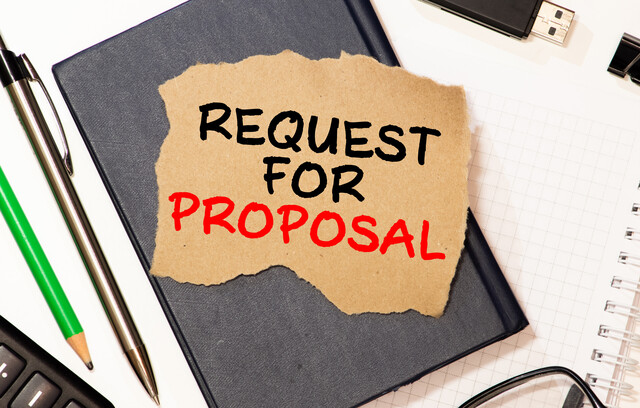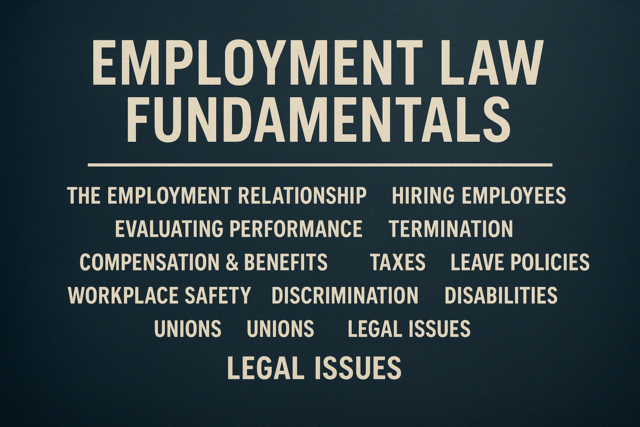When a dispute arises, or when a party is damaged or suffers loss, parties to a contract can have an intermediary settle the disagreement. Many written contracts define the acceptable process and responsibilities within the agreement. Under common law, a party suffering because of breach or other wrongdoing (called the injured or aggrieved party) can seek a remedy called liquidated damages. This remedy is usually intended only to compensate the injured party to an equitable position rather than punish the wrongdoer. The position can be one where the wronged entity would have been if she had never entered the contract or one where she would arrive due to the completion of the agreement. If the damages are not defined within the contract, the recoverable amount is considered at large, left up to the intermediary's discretion.
Under the Uniform Commercial Code (UCC), an injured party can recover damages as well. Contracts are typically between a buyer and a seller (merchant) or between merchants. Disputes arise because of issues surrounding delivery and acceptance of goods. Contracts for $5,000 or more must be in written form in order to be enforceable. The remedy will generally range between the contracted price for the good and the current market value at the time the contract was executed.
There are several forums in which contested contracts can be settled. Though most people may be familiar with the tradition of arguing cases in court, there are other options that are less costly and time consuming, yet carry similar legal weight as a judicial decision.
1. Damages. A monetary award intended to compensate the plaintiff for loss, injury, or restoration of its status prior to the wrongdoing.
2. Coercive Remedy. An order to perform or not perform a specific action (typically fulfilling the contract as stated).
3. Declaratory Judgment. A court determination which preserves a party's rights without awarding damages or a coercive remedy.
Damages are considered a legal remedy, whereas coercive and declaratory judgments are equitable remedies.
Alternative Dispute Resolutions (ADR)
Often parties in dispute over contract terms choose to engage an impartial adjudicator to settle the disagreement. This process typically involves a third party, sometimes with specialized knowledge (for instance, technical financial operations) about the issues being contested. Besides being somewhat less costly and complex, the advantages of ADR include privacy for the parties and, in some cases, the ability to have more control over who is chosen to help resolve the issues. The four primary options are arbitration, mediation, negotiation, and collaborative law.
Arbitration has been used in labor contract negotiations since the mid-1800s. Collective bargaining agreements between employers and unions typically submit to this form of settlement. Additionally, securities and financial transaction participants typically use arbitration. Arbitrators (sometimes called "arbiters") have wide latitude to determine awards, but the contracting parties have the right to limit awards (both parties must agree to the limits). An arbitrator may not exceed the limits of his authority in granting awards. For example, he may not grant damages such as offering one party the right to operate the other's boat when settling a business related dispute.
Similar to arbitration, mediation involves a process managed by an independent third party (called a mediator). Mediation is considered non-binding because it is more of a formal discussion between disputing parties than a judgment handed out by a third party. The parties determine themselves what the outcome should be. The mediator encourages discussion, facilitates problem solving, and provides outside perspective. Mediators are typically chosen by the parties because of their experience and knowledge within the industry concerning the contract, and mediation experts have critical training and education in brokering agreements. Both parties have equal opportunities during discussions, which supports goodwill and helps maintain relationships. Sometimes there is a settlement; sometimes the dispute must move to a binding settlement forum. Submitting to mediation does not waive a disputant's right to a court process.
Mediation is often used first to handle employment issues, such as discrimination or harassment. By avoiding the time, cost, and embarrassment of a more formal, binding process, both sides can preserve their relationship and reputations, and close the issue more quickly. Mediated cases are discussed under a contract of confidentiality, and all parties submit to the process voluntarily. When used, mediation typically precedes any investigative actions and formal charges of wrongdoing.
The most popular ADR forum used to create business transactions, negotiation can involve an independent third party or only the parties to the contract. Opposing sides can enlist an advocate (a lawyer) to negotiate on their behalf. Negotiation is a self-determining process whereby each side makes its case for an outcome and a negotiator (similar to a mediator) helps craft a resolution. Solutions are non-binding until officially agreed to by all sides. Often parties in negotiation are most successful when employing the popular win/win strategy whereby each side bargains positively towards the common objective.
Used mostly in divorce cases, the collaborative law forum involves having lawyers negotiate an agreement. When parties have a need to maintain a relationship following the decision, this method can be a most valuable process. No judgment, award or decision is made by a third party; like negotiation, collaborative law is a self-determining forum. Lawyers provide not only legal expertise, but can act in an advisory role as well. By removing the emotional confrontations often involved in contentious disagreements, each party's representative can clearly craft a contract without involving a court decision, thereby avoiding the litigation process. The outcome is a binding, enforceable contract to perform or not perform.
Contract enforcement protects both the commercial and social fabric of society, providing a means to ensure that promises made are committed to by both parties. Most simple, low value contracts never need a forum to be enforced; the parties either informally adjust their performance, or the dispute is dropped. United States enforcement extends to all agreements, no matter how small. There are many variables to consider when enforcing a contract; some of the most important occur at the beginning of contract formation. When does a contract go into effect? How long does an offer remain on the table? What technically constitutes acceptance?
� What exactly is an offer?
An offer is valid if it bestows (confers) a power to the offeree to bind the offeror into a contract. Simply mentioning to an ability to fulfill a need does not constitute a valid contract, unless it comes with a specific promise to perform in exchange for a consideration from another party. Distributing brochures and other marketing efforts do not typically mean that there is a contract in place, unless there is a price listed and other conditions are disclosed. Let's look at two scenarios:
Scenario #1
Paul and Gary are talking at a cocktail party. Gary is complaining about the family computer's recent operating problems. Paul, a computer programmer, mentions to Gary that he has a knack for fixing computer glitches. Gary replies by explaining the problem whereby Paul responds saying, "I can fix that." Gary tells Paul he is determined to fix the problem, but does not ask for help. Paul has not made an offer and is not obligated to assist Gary, unless it can be proven that Paul implied he would help fix the problem in exchange for some type of payment.
Scenario #2
Two home remodeling contractors, Robert's Remodeling and Mary's Home Improvements, meet with a homeowner named John to bid on a bathroom updating project. Both companies discuss specifications, timelines, and policies while visiting with John. Before Mary leaves the home, she mentions that she could do the job for less than any other contractor. John receives a price from Robert, but his calls to Mary are not returned. John refuses Robert's offer in anticipation of accepting Mary's proposal. When he finally speaks with Mary (one week after refusing Robert's offer), she indicates that she cannot do the work. John does not have a valid contract with Mary because she never discussed the price consideration with John. Additionally, Robert is not obligated to adhere to the original offer because it was refused by John.
The entire offer must be agreed upon by both parties for the contract to be valid. Terms that are unacceptable by any party must be resolved prior to the agreement becoming enforceable. An invitation to bargain or an invitation to treat is not an offer, but a negotiation step requesting additional interest from others. For example, a shop owner who displays goods in the window is under no obligation to sell the items even when signage, such as for a promotion, exist because the display is simply an indication that the shop has those items available.
� Can you make multiple offers at the same time?
In general, you can offer an unlimited number of promises to others, including several different offers at the same time to the same offeree. Retail activities are a prime example of multiple offers, in that goods are offered to multiple parties concurrently. The offeror is obligated to complete the promise if it is accepted by any of the offerees. If more than one offeree accepts the offer, each offeree has an equal legal claim to make the offeror perform.
� Do you have to demand something in exchange for your offer?
No. Contracts such as unilateral forms are valid in the absence of a reciprocal action until an exchange is offered in return. Looking at Scenario #1 above, if Paul had said, "I can fix the problem for $100." then, when Gary calls later for Paul's assistance, Paul must assist Gary and can demand payment when the task is complete. (Unless sufficient time has passed that could void the offer.)
� How long is an offer available?
Under U.S. common law, once an offer is made it remains open for what would be a reasonable time to an impartial observer. If it is not accepted quickly by the offeree, the offeror does have the right to cancel the offer and make a new one if he chooses. Time frames vary depending on industry or jurisdiction. In many commercial activities timing is critical (and contracts include a time is of the essence clause), so the offeror must respond in a manner that does not appear to delay or disrupt the offer.
� How does an offeror handle multiple responses to an offer?
An offeror must accept any and all reciprocal performance that satisfies the offer and acceptance terms if made within the applicable time period. The exception would be if there was a restriction placed upon the offer, such as until supplies last, or to the first fifty customers. If an offer is mass distributed, as in advertisements, it must stand to all prospective offerees for a reasonable time period (under common law) or up to three months (under the UCC).
� What happens when an offeree makes changes or additional conditions to the offer?
Any change made to any aspect of an agreement is considered a rejection cancelling the original contract, and is considered a counter offer by U.S. courts. A counter offer is a rejection of the original offer. Under the mirror image rule in common law, the offer must be accepted without modification. Contracts governed by the UCC, however, allow for minor alterations of conditions as long as the substantial and material aspects of the contract remain in place. For instance, a major league baseball team orders t-shirts for a promotion that read "Bring the Noise!" After agreeing to do the job and receiving up-front payment, the parties agree to alter the saying to read "Bring da Noize!" The original contract would still be in place.
� What if an offeror wants to take back an offer?
Until an offer has been accepted, the offeror has the right to rescind or revoke his offer. However, if there is no expression of rescission, the offer will remain open. If an offerer changes their mind prior to acceptance and wishes to modify their offer, any new offer is considered the standing offer until accepted; the offeree can no longer accept the original offer.
� What is a valid consideration?
There are three requirements that must be fulfilled in order for a consideration to be valid. First, a bargain must be made. Each party discusses the performance that it will deliver as part of the agreement. Not only does this include the actual item to be delivered or the action to be performed or excluded, but the conditions (sometimes called parameters) underlying the offer. This does not mean that the parties must negotiate the terms, but the considerations must be understood clearly by each participant before reaching the second requirement for a valid consideration, mutual exchange.
The considerations offered must be a part of a mutual exchange between the parties. If a neighbor seeking to sell their home offers to mow an elderly homeowner's lawn next door for free (in order for her home to appear more attractive for sale) and the elderly neighbor agrees, a contract has not been formed because the neighbor did not offer anything in exchange for her promise. If the elderly homeowner offers to stay out of sight while the home seller shows her house to prospective buyers, then a contract has been formed because an exchange of promises has been made. But the promise to remain hidden must meet the third requirement to be part of a valid contract, a promise of value.
The consideration that each party offers must be something of value. As mentioned earlier, it doesn't have to be substantial, just sufficient to benefit the offeree. Contract enforcement requires that a reasonable, impartial observer must see value in the reciprocal promise of the offeree. If you donate your car to a charitable organization by driving it to the local chapter and it accepts the vehicle with no further effort, there is no contract because the organization did not return your promise with one of its own (for instance, paying for the car). However, if the organization offers to remove your broken-down vehicle from your driveway in order to receive it, then a value has been created. Value is typically derived from effort. It can be explained as a benefit to one party at the detriment of another. By simply exerting unusual effort or changing a pattern of behavior or activity, a party can show its consideration to the contract. Some argue that a value must bestow an economic advantage to an offeree, however contracts have been held as valid even when one party's consideration helps another avoid discomfort or unfair treatment.
Consideration is not valid under two conditions:
-
Pre-existing duty rule. A party cannot offer for consideration a performance that it is already legally enforceable, such as a promise to not to steal or kill. Additionally, a party cannot offer an action that is against public policy.
-
Past consideration. A party cannot offer an action or event that has previously taken place. If a child delivering newspapers repeatedly places a daily edition at a non-subscriber's home without approval, he cannot ask for payment for the delivery of those papers at a later date.
� When does the consideration have to be committed?
- What constitutes acceptance of an offer?
There are three primary ways of expressing acceptance to an offer:
By indicating assent through written or verbal expression. Signing a written agreement is the most enforceable method of expression. Some contracts allow signatory parties to cancel a contract within a short time period, but the agreement becomes valid once both parties sign. A verbal acceptance can be simply done by saying, "I do." or "I will." Verbal agreements can be executed through third parties, though enforcement becomes more challenging.
By behavior that indicates acceptance. If an offeree understands the offer, he may simply act in a way that would show he accepts the promise. His behavior automatically obliges him to perform according to the terms of the agreement. For example, if Fred hears about an offer to enter a drawing to win a new car at a local dealership by visiting on Saturday, when he shows up on that day he is entitled to be entered into the contest according to its terms. Assent can be given whether the offeree receives the offer directly or indirectly (such as by word-of-mouth).
By offering reciprocal performance. This is typical of unilateral contracts; an offer becomes a contract when the exchange is matched by reciprocal actions. Making a payment, entering a code, or calling a toll free number are examples of reciprocal performance. For example, by placing garbage cans at the curb, you have accepted your city's offer to collect trash according to its terms, standards, and conditions. If there are restrictions that you are unaware of regarding acceptable items, you cannot expect collection of unacceptable materials simply because they are waste materials. You are bound by the offeror's terms. Accordingly, the city is obligated to remove your trash if it is placed in the appropriate location.
- When is acceptance made official?
Acceptance is considered applicable when it is communicated to the offeror. If there is a delay in receiving the acceptance, the rule of thumb is: acceptance is valid when it is dispatched by the offeree. For example, if a signed contract is placed in the postal mail system on Monday and received on Wednesday, acceptance is considered granted on Monday (called the mailbox rule). When acceptance is orally delivered to an answering device, it is valid at the time the message was left. Additionally, a contract accepted via email becomes valid when the email system delivers the message.
What happens between an offer and its acceptance? Depending on the complexity of the subject matter and the willingness of the parties, a simple acknowledgement by phone, email, or a nod of the head may determine an official contract. However, many contracts are negotiated and put in writing. How do you create an agreement that will be acceptable?

























